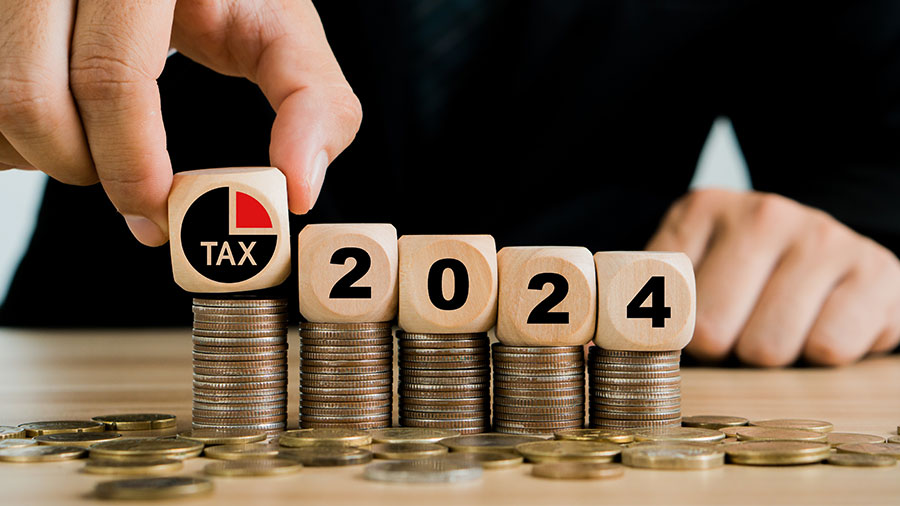India had extended the corporate concessional tax rate of 15 percent for manufacturing companies incorporated on or before from March 31, 2024. As this date comes closer, industry stakeholders are petitioning for an extension from the government and an expansion of the scheme's benefits.
As the interim union budget for FY2024-25 approaches, Indian companies eagerly await a decision regarding the extension of the sunset period for availing the concessional tax rate of 15 percent for the establishment of greenfield manufacturing units. In February 2022, Revenue Secretary Tarun Bajaj expressed the government's eagerness for domestic companies to promptly establish new manufacturing units due to the sunset clause of the concessional regime.
Read: Corporate Income Tax in India
What is the concessional tax regime?
In September 2019, following a reduction in the corporate tax rate, the government announced that any new domestic company incorporated on or after October 1, 2019, making fresh investments in manufacturing, could choose to pay income tax at a reduced rate of 15 percent. This privilege applied if they commenced production on or before March 31, 2023, without availing other incentives.
In the 2022-23 Union Budget, Finance Minister Nirmala Sitharaman extended the concessional 15 percent corporate tax rate for manufacturing companies incorporated on or before March 31, 2024.
Eligibility criteria
The favorable tax rate of 15 percent (plus a surcharge of 10 percent and applicable health and education cess) is subject to certain conditions, all of which must be met collectively:
- The company must be incorporated on or after October 1, 2019, and initiate the manufacture or production of any article or thing on or before March 31, 2024.
- The 'business' should not result from the division or reconstruction of an existing business, except for cases of re-establishment, reconstruction, or revival.
- The company must refrain from using plant and machinery previously employed for any purpose in India, with no depreciation claimed on the same.
- It should not use a building previously designated as a hotel or convention center, where deductions under the Income-tax Act, 1961 have been claimed or allowed.
- The company's primary engagement should be in the manufacture or production of any article or thing, along with research or distribution of such articles. Certain activities, including software development, marble block conversion, gas bottling, book printing, and cinematograph film production, are not considered qualifying businesses.
- The company must not have claimed benefits for establishing units in Special Economic Zones (SEZs), accelerated depreciation, additional depreciation, investment allowances, expenditure on scientific research, or any deduction for specific income other than employment of new employees.
- The company should not have claimed set-off of loss and unabsorbed depreciation from earlier years, including those related to losses/depreciation on amalgamation, if such loss is attributable to the deductions mentioned in point (vi) above.
- If difficulties arise in meeting certain conditions, the Indian Revenue Department may issue guidelines for resolution.
- The option to avail the reduced Corporate Income Tax (CIT) rate of 15 percent must be exercised in the prescribed manner before the due date for income filing.
- Domestic transfer pricing provisions apply to these companies.
- Companies opting for this rate are exempt from Minimum Alternate Tax (MAT) and MAT credit provisions.
- If the company fails to comply in a given year, the benefit of the reduced tax rate is not available for that year and subsequent years. The other provisions of the Income-tax Act will be applicable as if the option had not been exercised from the year of non-compliance. However, such a company may choose to be governed under the reduced tax rate of 22 percent (plus a surcharge of 10 percent and applicable health and education cess).
Industry perspective
Various industry bodies have petitioned the Finance Ministry for a more substantial three-year extension, citing challenges posed by the impending March 31 deadline and other issues related to the scheme. The certainty of receiving clarity on this matter during the upcoming interim budget presentation, however, is unclear.
Experts petitioning the government argue that a one-year extension is insufficient, particularly considering the intervening years of the Covid pandemic and the capital-intensive nature of establishing manufacturing plants. They point to the fact that CIT collections in January recorded a net growth of 12.37 percent year-on-year, indicating the positive impact of concessional tax rates on government revenues.
However, while the concessional tax rates, namely 15 percent for new manufacturing companies and 22 percent for other corporates, have benefited the industrial and manufacturing sector, ongoing challenges persist. Some stakeholders propose expanding the concessional tax regime to include segments allied to manufacturing, such as simulation services and testing services. This would particularly help smaller enterprises and the MSME sector.
Beyond concerns about the looming sunset date, industry stakeholders also point to issues in the operationalization of the concessional tax scheme, where companies must meet specific tests to qualify for the lower tax rate. For instance, a company can use old plant and machinery, provided its value does not exceed 20 percent of the total machinery value.
Other areas requiring clarification include whether the provisions will extend to additional capacities added subsequently and if the benefit will apply to the setup of plants for manufacturing different products. Challenges also arise during tax return filing, as companies need to indicate the date of commencement of production, a requirement that may not align with the timing of their first income tax return filing.
Additionally, the law prescribes a 22 percent tax rate on incomes generated within the same company that are not incidental or ancillary to the manufacturing business. This provision, designed to cover incomes like interest, raises questions about whether the same rate will apply to other income streams, such as trading sales or annual maintenance contract incomes earned by the company. Clarity on these issues would be beneficial for businesses navigating the current tax landscape.
In general, India's corporate tax rates, currently at approximately 34 percent, surpass those of China (25-15 percent, depending on sector and region), Malaysia, Vietnam, Thailand, and Taiwan. These cost differentials may act as a deterrent for global investors in selecting India as their preferred manufacturing base. It is why the concessional regime for the manufacturing sector was lauded during its introduction, and why industry experts are seeking a broader scope of application and for a longer term.











